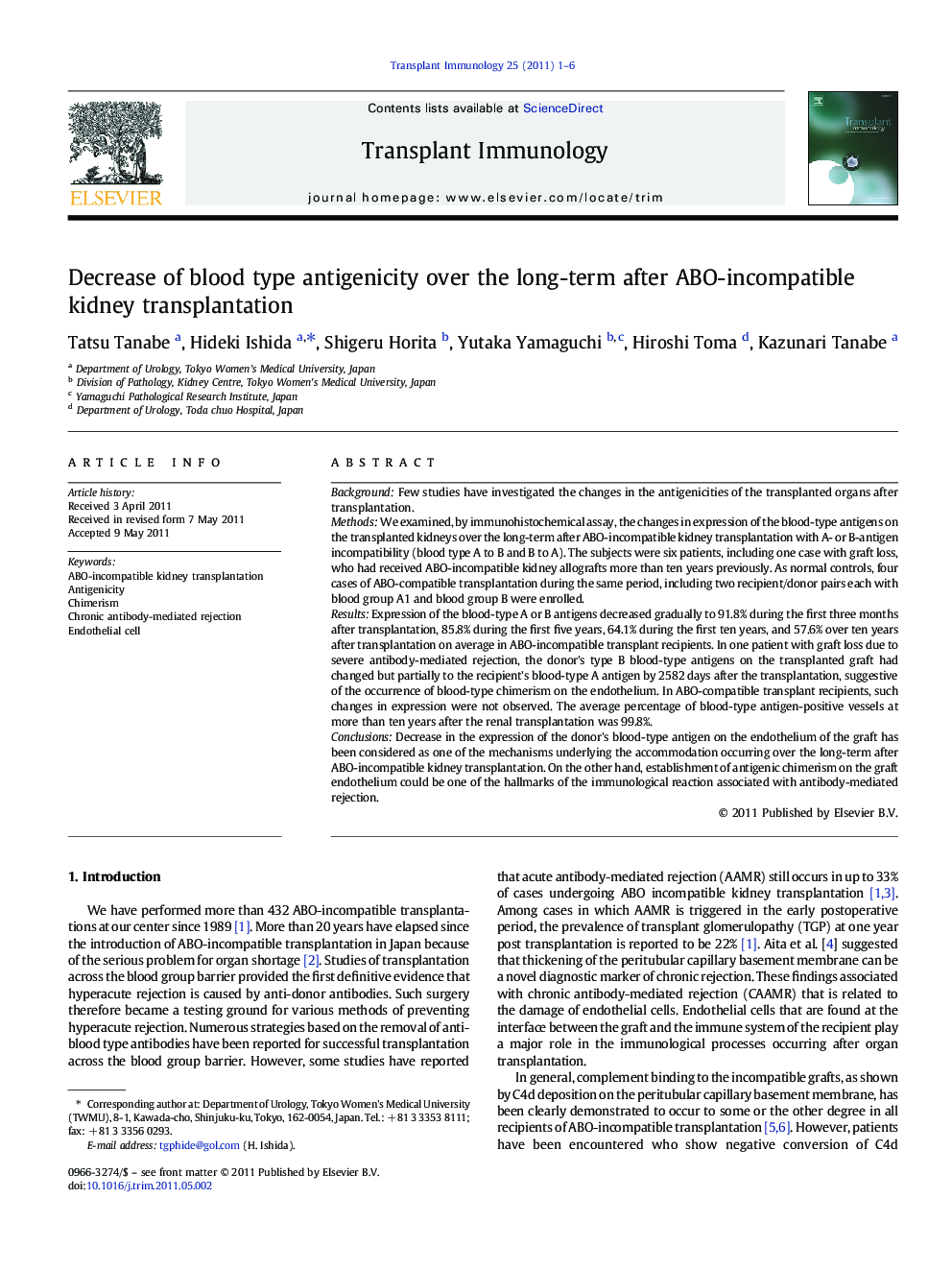| کد مقاله | کد نشریه | سال انتشار | مقاله انگلیسی | نسخه تمام متن |
|---|---|---|---|---|
| 3392183 | 1221201 | 2011 | 6 صفحه PDF | دانلود رایگان |

BackgroundFew studies have investigated the changes in the antigenicities of the transplanted organs after transplantation.MethodsWe examined, by immunohistochemical assay, the changes in expression of the blood-type antigens on the transplanted kidneys over the long-term after ABO-incompatible kidney transplantation with A- or B-antigen incompatibility (blood type A to B and B to A). The subjects were six patients, including one case with graft loss, who had received ABO-incompatible kidney allografts more than ten years previously. As normal controls, four cases of ABO-compatible transplantation during the same period, including two recipient/donor pairs each with blood group A1 and blood group B were enrolled.ResultsExpression of the blood-type A or B antigens decreased gradually to 91.8% during the first three months after transplantation, 85.8% during the first five years, 64.1% during the first ten years, and 57.6% over ten years after transplantation on average in ABO-incompatible transplant recipients. In one patient with graft loss due to severe antibody-mediated rejection, the donor's type B blood-type antigens on the transplanted graft had changed but partially to the recipient's blood-type A antigen by 2582 days after the transplantation, suggestive of the occurrence of blood-type chimerism on the endothelium. In ABO-compatible transplant recipients, such changes in expression were not observed. The average percentage of blood-type antigen-positive vessels at more than ten years after the renal transplantation was 99.8%.ConclusionsDecrease in the expression of the donor's blood-type antigen on the endothelium of the graft has been considered as one of the mechanisms underlying the accommodation occurring over the long-term after ABO-incompatible kidney transplantation. On the other hand, establishment of antigenic chimerism on the graft endothelium could be one of the hallmarks of the immunological reaction associated with antibody-mediated rejection.
► We investigated the changes in the blood-type antigens on ABO-incompatible grafts.
► Expression of the blood-type antigens decreased gradually after transplantation.
► This phenomenon may result in ABO-incompatible graft acceptance for a long time.
► Chimerism on the graft endothelium could be one of the hallmarks of rejection.
Journal: Transplant Immunology - Volume 25, Issue 1, July 2011, Pages 1–6